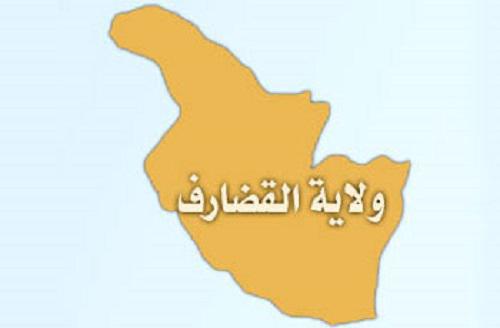Gadarif… “dengue fever” and “cholera” and people are running out of patience, so what is happening there?!

Talal Mudathir – Sudan Events – Gedaref State
In an unprecedented manner, and coinciding with the 6th month of the war between the government and the dissolved “Rapid Support Militia” The state of Gadarif in eastern Sudan, which is crowded with people fleeing the hell of war in addition to the population, has been struck by a wave of rampant diseases and epidemics that began with malaria, then crossed over to dengue fever and ended with the Federal Ministry of Health declaring an outbreak of an epidemic. Cholera in all parts of the state amidst strong public criticism of local authorities for failing to perform their role in combating the health crisis, which led to high rates of infections and deaths due to the disease, as the number of dengue fever death cases in Gadarif reached 10 deaths compared to 19 deaths caused by newly imported cholera, according to official government statistics recorded, in addition to the hundreds of people who died. They fell into homes and villages in peripheral localities.
Autumn’s epidemics
The health authorities in Gadarif State say through their health officials that they have been anticipating since last March for this wave of diseases, which they include under the name of “autumn epidemics,” and developed their plan to combat them in cooperation with the Federal Ministry of Health during the Minister of Health’s visit to Gadarif last June. However, the problems of weak federal funding and the delay of organizations in support led to worsening the situation. according to the statements of the Director of Emergency at the Ministry of Health and Social Development, “Anwar Banaga,” at the Press and Society Forum in Gadarif last Saturday, he indicated that Gadarif recorded 250 cases of watery diarrhea, including 15 deaths, in addition to recording 800 cases of dengue fever and ten deaths, “Banaga” criticized the lack of government funding for the control campaigns and pointed out that they received only government funding from the municipality of Gadarif, which was not 100% sufficient, which is implicitly denied by the Minister of Finance, in charge of the state, Najat Ibrahim, who spoke in her statements a few days ago about her ministry allocating an amount of (176) million pounds to spend on control operations, which she detailed as “13” millions for the first campaign, “26” millions for the second campaign and “50” millions for the campaign currently underway, while emphasizing her ministry’s readiness to pump more financial sums for any health emergency.
unrealistic reports
Upon this state of controversy, the governor of Gadarif State, Mohamed Abdel Rahman has another point of view, as he stated in an emergency meeting of his government that the written reports of his executive associates for the control are “unrealistic, while the field work is the only way to the elimination of fevers” A statement that was met by a strong critisism in the state which is crowded with hundreds of thousands of the displaced people disapproved the fact that the report was issued by the first man in the state, which prompted Elias Ahmed Elias – one of the citizens of the state – to ask angrily: Who authorizes these unrealistic reports? Isn’t he the governor himself? Then he added angrily: These people are tampering with the health of the citizen, and the centre is colluding with them by remaining silent on their failures and irresponsibility, and they must be held accountable.
The Minister of Health reassures
Minister of Health, Haitham Mohamed Ibrahim, in his latest statements, downplayed the crisis and said that the outbreak of seasonal epidemics is not surprising, but was expected to occur in the same period every year. He added that Sudan’s location in the tropical zone makes it seasonally vulnerable to malaria, dengue fever and cholera, noting that cases the incidence of dengue fever reached 1,000 cases in 8 states of which Gadarif alone had 800 cases, confirming the availability of the necessary medicines and denying their scarcity, while the preliminary committee of Gadarif State doctors said in a statement that the lack of cleanliness campaigns in markets and residential neighborhoods led to the breeding of flies, which helped in the spread of watery diarrhea in the city. When the World Health Organization was also present, it issued a statement in which it said that 162 suspected cases of cholera were admitted to hospitals in Gadarif State… 80 cases were confirmed. The governor of Gadarif concluded this series of statements with a new statement today, Monday, in which he said that watery diarrhea is in some pockets in the regions of borderlands.
Controversy and reassurances
Amidst the state of exchanging accusations of negligence from all of these parties, the citizens of Gadarif remain prisoners of confusion, which is noticed by the visitor of the public hospital of which beds are crowded with hundreds of dengue fever patients and those who were knocked by cholera, so they come in search of wellness, while the itself suffers from problems such a dirty and unclean sanitary environment, and inside it roam the street food and drink vendors, bean and snack vendors sitting in front of its entrance, in addition to the problem of the breeding of mosquitoes that transmit the disease in the hospital, something that prompted a popular organization in Gadarif, which is supported by donations, to carry out a mosquito spraying campaign in the hospital to combat the vector the day before yesterday, amid patients’ dissatisfaction with the event and their discontent with the state health authorities, which revealed the wave has revealed their poor performance and its slow response to crises. In addition to that its the hospital has become open to the of people’s questions and their patience, which has run out.



